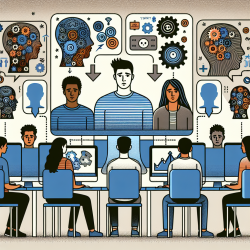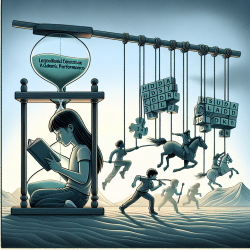As a practitioner dedicated to the mental well-being of children and adolescents, it is crucial to leverage evidence-based strategies to enhance therapy outcomes. A recent study, "Working Alliance in Online Cognitive Behavior Therapy for Anxiety Disorders in Youth: Comparison With Clinic Delivery and its Role in Predicting Outcome," provides valuable insights into the efficacy of online Cognitive Behavior Therapy (CBT) for youth anxiety and the pivotal role of working alliance.
The study highlights two key findings:
- Strong Working Alliance: Both online and clinic-based CBT can establish a strong working alliance between therapists and young clients. For adolescents, the strength of this alliance is comparable in both settings.
- Age-Dependent Outcomes: The effectiveness of the working alliance in predicting therapy outcomes is significantly influenced by the age of the youth. Adolescents benefit more from a strong working alliance and exhibit better compliance, leading to improved treatment outcomes.
Here are some practical tips for practitioners to enhance the effectiveness of online CBT for youth anxiety:
- Foster a Strong Working Alliance Early: Use personalized feedback, engaging content, and consistent communication to build a strong therapeutic relationship, especially in the initial sessions.
- Tailor Strategies by Age: Recognize that adolescents may require more direct engagement and support from their online therapist, while younger children might benefit from increased parental involvement.
- Monitor Compliance: Regularly track the completion of therapy tasks and provide timely encouragement and support to maintain high levels of compliance, particularly for adolescents.
- Encourage Parental Involvement: Ensure that parents are actively participating in the therapy process, as their involvement is crucial for younger children and can enhance overall treatment efficacy.
Implementing these strategies can help practitioners create a more effective and supportive online therapy environment, leading to better outcomes for children and adolescents with anxiety disorders.
To read the original research paper, please follow this link: Working Alliance in Online Cognitive Behavior Therapy for Anxiety Disorders in Youth: Comparison With Clinic Delivery and its Role in Predicting Outcome.










